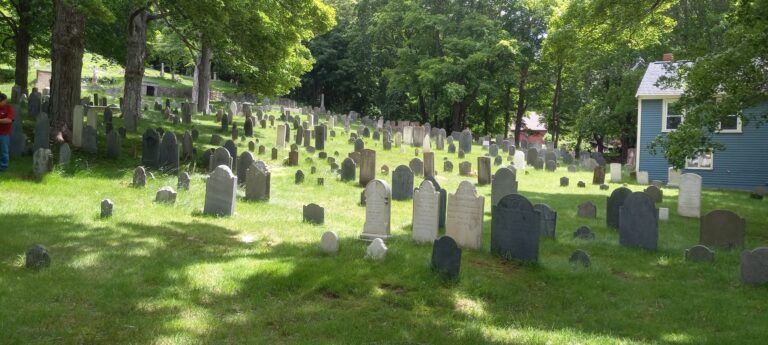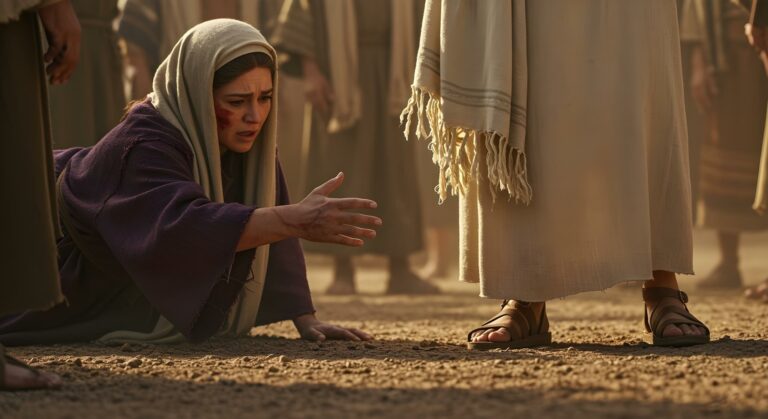Ed Welch is a counselor of over 30 years and a prolific author. He writes in his book “Running Scared”:
“Although I can be angry or melancholy, I am a fear specialist. In this I have found that I am not alone. Not everyone is a fear specialist, but there is no doubt that every single person who ever lived is personally familiar with fear. It is an inescapable feature of earthly life. To deny it is…well… to deny it.”
-Ed Welch in “Running Scared” (page 9)
All of us can relate to the feeling of being afraid.
We could all enumerate countless examples of situations that create fear in us. There are all the usual suspects like flying probably for some of you or standing on the edge of a cliff. Maybe death or your finances. Getting sick or growing old and getting dementia, losing your mind. Maybe it’s the fear of losing someone close to you. Maybe you fear rejection or what people think of you.
Or just turn on the news. The pandemic, the upcoming election, protests, riots, unemployment, tensions with other nations. There is no shortage of things to be fearful of today.
But should believers fear these things? Take the pandemic as specific example; should we fear it? As churches like ours around the country wrestle with how to open their doors again, different opinions are emerging. Some say, the need for the church to gather far outweighs the risks involved. Take John MacArthur’s church, Grace Community in California as one example. Other churches have begun to share negative re-opening experiences (like this one) that has some believers pausing and wondering if re-opening at all is possible or safe.
I think whether or not a church decides to re-open is a complicated issue and I am grateful for folks like Jonathan Leeman who have thought deeply about this topic. For just one example, see Leeman’s article “A Time for Civil Disobedience?” on the 9Marks website.
My purpose here is not to address that question but to talk about the question of whether or not Christians should be experiencing fear during this time or not. Should we be “concerned” about the COVID-19 virus or not? Or even further should we “fear” this thing and the effects that it has had and likely will continue to have on our churches, communities, and nation?
Let’s take a moment to think about what the Scriptures say about this topic.
Do Not Fear
Repeatedly the Scriptures say that we should not fear or that believers are not people who live in fear. Here are just a couple of examples:
“[B]ut whoever listens to me will dwell secure and will be at ease, without dread of disaster.”
-Proverbs 1:33
“[F]or God gave us a spirit not of fear but of power and love and self-control.”
-2 Timothy 1:7
In many places in the Scriptures fear is a characteristic of the wicked (see Job 15:24; 18:11; Rev. 21:8) or is judgment upon evildoers (Lev. 26:16; Deut. 28:65-67; Jer. 49:5). Those who follow God, however, are described as being delivered from fear (Prov. 1:33; Isa. 14:3; 2 Timothy 1:7). If you have a concordance, you can find, literally, dozens of other examples similar to these.
Despite the Scriptures commands not to fear, if we are honest, most of experience some kind of fear or concern related to this pandemic. Many of us are deeply concerned about losing a spouse or losing our job or becoming homeless or having to ask for help, especially those of us who are vulnerable in some way or live or work with someone who is vulnerable. For some of us, these things may even keep us up at night. Many of us must confess that to one degree or another, we are battling fears of what this virus could do or is doing to our churches, our communities and our world.
But is all fear sinful? Is it so black and white? Even Jesus felt some kind of “anguish” in the Garden and the Psalm writers dealt with fear: [1]
“When I am afraid, I put my trust in you.”
-Psalm 56:3
It appears that even some of the apostles dealt with fears in their earthly lives (see 2 Cor. 1:8-9 and 1 Peter 5:7).
Good Fear vs. Bad Fear
Is there a kind of fear that is good?
Luke 12:4-5 is a helpful passage when it comes to distinguishing between different kinds of fears:
4 “I tell you, my friends, do not fear those who kill the body, and after that have nothing more that they can do. 5 But I will warn you whom to fear: fear him who, after he has killed, has authority to cast into hell. Yes, I tell you, fear him!
-Luke 12:4-5 (ESV)
One unique feature about this passage is that it is one of the few places in the bible where we are told “to fear” (verse 5) and, at the same time, “not to fear” (verse 4 and later in the passage in verse 7b).
What things are we told not to fear?
We are told not to fear those who can only harm our earthly lives. In context, Jesus is speaking to his “friends” (or disciples) and probably has the Pharisees, lawyers, and religious leaders of the day in view (see Luke 11:37-54 and Luke 12:1). The opposition at the time was rising and there would be consequences for those who continued to follow Christ. In other words, Jesus’ followers would be tempted to disobey Christ for the sake of not being harmed or killed by the religious leaders of the day. Jesus says that this kind of fear is bad. Why? Because it would lead us into disobedience of the one who can not only harm us in this life, but also in the life to come–God.
Bad fear, therefore, is fear that leads us to disobey God.
What is good fear? What things are we commanded to fear by Christ?
Verse 5 tells us that are to fear the Lord. And this teaching is in line with the Old Testament as well.
“It is the Lord your God you shall fear. Him you shall serve and by his name you shall swear.”
-Deuteronomy 6:13
“The fear of the Lord is the beginning of wisdom,
-Proverbs 9:10
and the knowledge of the Holy One is insight.”
The fear of the Lord leads to wisdom (also see Psalm 111:10 and Proverbs 1:7). It takes into account the fact that following death comes judgment (Hebrews 9:27) and that loss in this life is insignificant when compared to eternity (Luke 12: 13-21; 2 Cor. 4:17). Those who fear the Lord are heard by God (Mal 3:16), receive mercy from God (Psalm 103:11, 17), are blessed (Psalm 115:13) and have their desires fulfilled by God (Psalm 145:19). And it is this kind of fear leads us to do the things that God commands (see Proverbs 16:6). Therefore, this fear is a good fear.
So there is good fear and bad fear. Good fear is that fear of God that longs to obey Him and looks to Him in faith, seeing Him as a caring Father (Psalm 103:13; Luke 12:22-34), trusting His promises.
Bad fear is the fear that leads us away from obedience. It’s when the pressures of the world cause us to not believe God and cave. Some say that fear was really the original sin that led Adam and Eve astray. They feared being excluded from something; that perhaps the serpent was right and God was withholding some knowledge or blessing from them and so they ate of the tree. This was bad fear because it lead Adam and Eve away from obedience to the command given to them by God (Gen. 2:15-17).
A Test Case
Now, with the good fear and bad fear framework in front of us, I want us to think about the COVID-19 pandemic. Are you afraid? If so, what exactly are you afraid of? Perhaps you are afraid of getting sick and dying. Or, perhaps you are afraid of getting someone else sick and watching them suffer and possibly die. Maybe you are a business owner and this whole ordeal has caused hardship to come upon you and you have anxiety about whether or not you will make it out. Maybe, like me, you are a church leader and you are concerned about your people being isolated and the overall impact this crisis will have upon your church family. And we could list many other types of fears/anxieties that this COVID-19 situation has created.
Are these good fears or bad fears? Which category do they fall in?
Each of you must ask yourself what is underneath those fears. Let’s say you fear getting someone else sick, maybe a spouse or a loved one or a neighbor. So you are very cautious and you wear your mask and sanitize regularly and keep your distance and only go out when necessary. Now, if that fear is genuinely rooted in a deep love for your spouse or your friend or neighbor, and you believe that it is your obligation as a follower of Jesus to love your neighbor (Luke 22:36-40) and this is how you do it, then I would say that is healthy. Why is it healthy?–because what is underneath it is a fear of God that creates a genuine love for people (see 1 John 4:7-8; 20-21) and a longing to obey his command to love (1 John 4:19).[2]
However, if after thinking it over a bit more you conclude that really the reason you are being so cautious is because you simply cannot fathom life without your spouse or your friend or your neighbor and you think that you would simply not make it through the pain of losing someone so close, then I would say your fear is ungodly. If this is what motivates all of your precautions then you are not believing the promises of God. You are not putting your ultimate trust in your heavenly Father. Instead, you are laying up treasures upon earth and are trying to find life and security and meaning in the things of this world, all of which are things Jesus warned us about (see Matthew 6:19-21).
So I encourage you to think about your fears more deeply. Some of you are absolutely terrified of this virus. I want to ask you why? Is it because you fear God or is it because you are afraid of other things? The first is good, the second is not.
I would wager if we are honest with ourselves and with one another that most of us would have to say that we have fears that fall into that second category–bad fears. We are terrified of losing a spouse or losing our job or becoming homeless or having to ask for help.
Let Fear Lead You to the Cross
Although those fears are not good, let us also remember the compassion and care of our Lord. That he does not deal with us according to our sins (Psalm 103:10). Let us remember what the Psalmist did when he was afraid!–he put his trust in God. What does Peter tell us to do when we are anxious? Cast our cares upon God (1 Peter 5:7).
Why? Why run to God when we are afraid? Why cast our cares upon the Lord?
Because He cares for you!
Remember that God is slow to anger and abounding in steadfast love (Psalm 103:8-14). Remember that the same God whose judgment and wrath we are to fear is the same God whose “eye is upon the sparrow” (Luke 12:6-7). Remember that He took such pity upon us that He sent His only Son into the world to endure the horror of his judgment and wrath so that all who would put their trust in Him would receive eternal life (John 3:16). Remember that the Son, full of love and kindness, willingly, in obedience to the desire of the Father, “emptied himself,” left Heaven, took on flesh and suffered for those who were far off, enemies of God (Phil 2:1-8).
This is why the emblem of our faith is a cross.
When we look at the cross we should see the terrible judgment of God upon sin–our sins–and fear, but we should also see the infinite love and compassion of God.
Fear is not good if it leads us away from the Lord but fear can be a gift if it leads us to the cross.
End Notes
[1] For an interesting discussion on the Jesus’ “anguish” in the Garden of Gethesamene, see Denny Burk’s article: “If no doubt or fear…” https://www.dennyburk.com/if-no-doubt-or-fear-then-what-did-jesus-feel/
[2] This may sound a bit mechanical. I have phrased it this way to get my point across. I do also believe that if we are followers of Jesus we will love people sincerely and not just out of duty or obligation. The love of God creates within us a real, genuine, deep, love for people (1 John 4:7-8).



